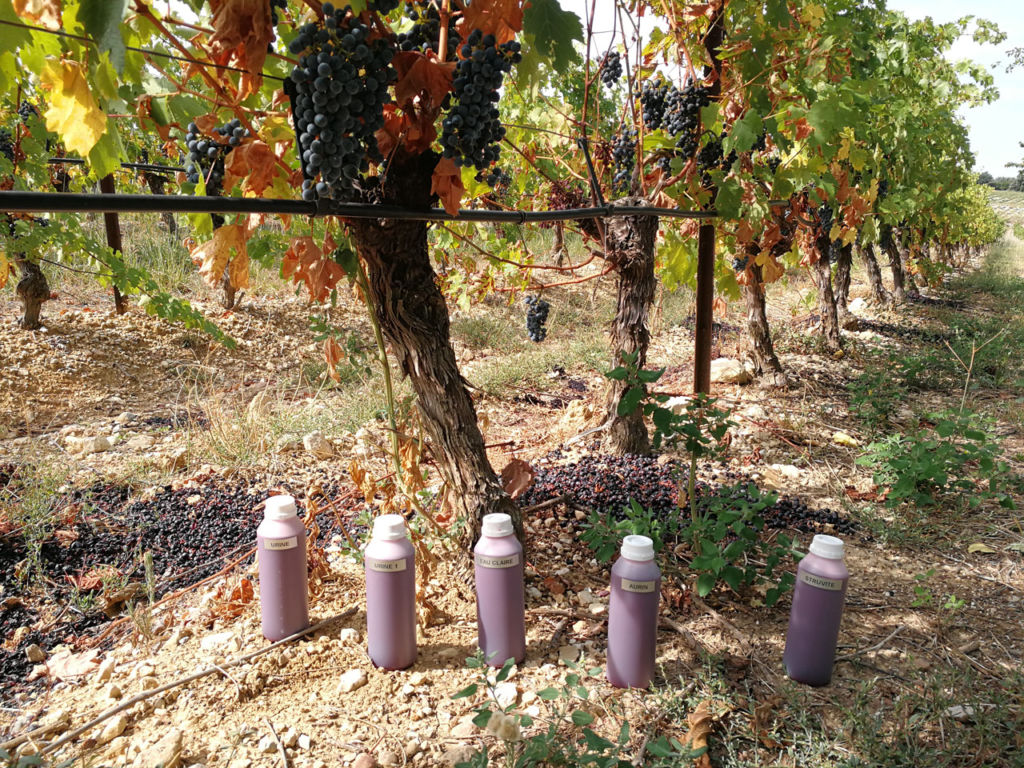[LUM#10] The miraculous virtues of urine
When scientists and eco-friendly entrepreneurs join forces to revisit the miracle of water turned into wine, the result is a very special vintage called "J'irai pisser sur vos vignes" (I'll piss on your vines). Or how the nutrients in our urine can be used as fertilizer for vines. The gospel of the Valurine project according to Marc Héran, researcher at theEuropean Institute for Membranes (IEM).

The French consume drinking water, a lot of drinking water, 20% of which is used solely for flushing toilets. This water must then be transported to our treatment plants, treated, and returned to our natural environments. It's a vicious cycle with enormous financial, energy, and environmental costs.
"We are just beginning to apply to water the same thinking we had about waste twenty years ago, when we set up recycling systems," compares Marc Héran, a researcher at theIEM. " For wastewater, however, the question is similar: can't we recover the nutrients it contains for irrigation, for example?"
This water treatment specialist has been conducting an experiment since last year with the Montpellier-based company Ecosec and the Jasse vineyard in Combaillaux. For two years, two plots of vines will be irrigated with fertilizers made from urine collected in dry toilets installed in the Hérault village and specially designed by Ecosec to separate urine and feces. The project is called Valurine.
From urine to fertilizer
"Without a doubt, the ecological transition is coming and will happen. This awareness of our consumption patterns and their dependence on fossil fuels and raw materials is a major topical issue," the researcher emphasizes.
"Most of the nutrients used as plant fertilizers—nitrogen, phosphorus, potassium—can be found in our urine , " explains Marc Héran. Phosphorus, which is essential for plants, is "a fertilizer that enables high agricultural yields. We extract it from phosphate mines, and we are mining more and more of it." It is a limited resource, and its depletion could lead to a global agricultural crisis in the coming decades.
"Nitrogen, on the other hand, is an unlimited resource," explains the researcher, "because it is present in the atmosphere. However, its cycle is extremely energy-intensive. " Wastewater treatment plants are required to treat nitrogen before releasing it into the natural environment in order to limit eutrophication (see box below). Once converted into gas, nitrogen returns to the atmosphere before being recaptured and converted back into liquid nitrogen for use as fertilizer.
Strict controls
The question remains as to how to use this urine properly. Urine can contain micropollutants and pathogens, so sanitation and monitoring are ensured throughout the transformation process. "We have not seen any internalization of pathogens in plants, and as for micropollutants, we are below detection thresholds," Marc Héran assures us.
Another objective of the operation is to optimize the management of urine volume, which is costly to store and transport. To limit these costs, the Valurine project is experimenting with several processes. The production of struvite, a powdered urine extract, and the concentration of urine through nitrification/distillation. "Struvite is extracted using a simple precipitation process, which recovers more than 90% of the phosphate and a small amount of nitrogen in powder form, thanks to the addition of magnesium to the urine, which produces a precipitate."
Concentrating urine requires a little more expertise, as it must first be nitrified, as Marc Héran explains: "This involves stabilizing the nitrogen present in urine in the form of ammonium by converting it into nitrate. " The urine is then distilled "to preserve all the nutrients in only 5-10% of the initial volume."
The end of mains drainage
Once concentrated in solution or powder form, or simply used as is, urine is ready for drip irrigation in open fields. A small miracle that has enabled the production of the very first bottles of wine from this fertilization process. A well-named vintage: "I'll piss on your vines" or the story of an eternal cycle where nothing is lost, nothing is created, everything is valued. "Urine can change the face of agriculture but also that of our planet. The 21st century will see the end of sewerage," concludes the researcher.
Eutrophication, suffocation of ecosystems
The growth of cities means that today, wastewater treatment plants discharge colossal volumes of water that "still contain far too many nutrients for rivers to be able to purify themselves, as was still the case 50 years ago," explains Marc Héran. Algae grow intensively, light can no longer pass through, they die, ferment and cause ecosystems to suffocate." This phenomenon, known as eutrophication, has led the authorities to impose standards on wastewater treatment plants regarding nitrogen and phosphorus discharge.
Find UM podcasts now available on your favorite platform (Spotify, Deezer, Apple Podcasts, Amazon Music, etc.).